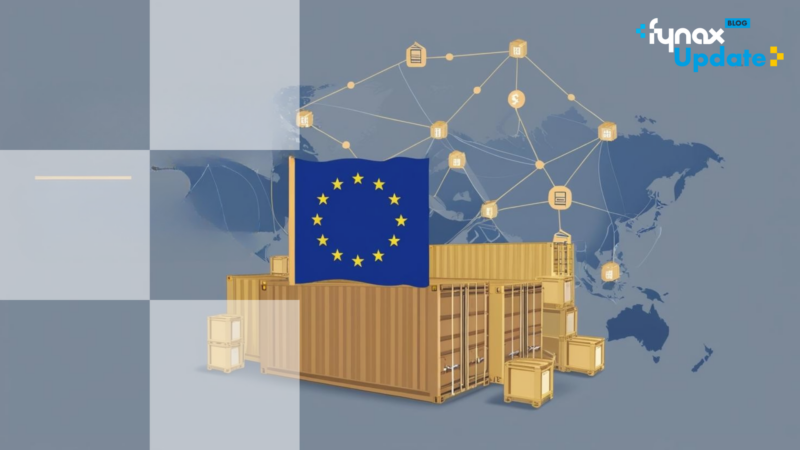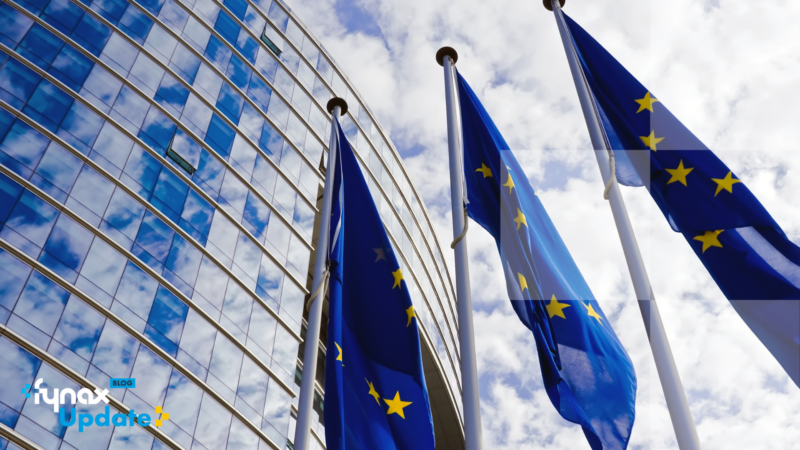Due to national digitization deficits: Reminders pile up in the one-stop store procedure
Share this article
Categories

More and more German online retailers and their tax advisors are receiving reminders from various European countries because they have allegedly not paid their VAT. This is an alarming development that not only represents a serious burden for the companies concerned, but also raises the question of whether the national implementation of the one-stop store (OSS) procedure in Germany meets the requirements of digital processes.
OSS process as a seamless tax compliance platform for European companies in e-commerce
The OSS process was developed in the course of the VAT digital package of the European Union in July 2021 with the aim of facilitating cross-border e-commerce within the EU. The idea is to create a central point of contact through which companies can register their VAT for cross-border online sales to consumers within the EU and pay it in a simplified manner. In Germany, the OSS platform is located at the Federal Central Tax Office (BZSt).
But the reality is sobering: many German online retailers have been struggling with the bureaucratic challenges and administrative hurdles since the VAT reform came into force, as the results of the fynax Trend Study 2023 "No sales tax relief in sight for retailers" showed. Around 73% of the online retailers surveyed estimate that their tax reporting obligations are more time-consuming than before the changeover. The study also revealed that 27% received payment reminders from other EU countries for not having paid the VAT there.
Increasing reminders put German tax authorities in the spotlight
The OSS procedure was originally developed to significantly reduce the burden on both companies and European tax authorities. So how can the increased occurrence of reminders be explained?
"The main reason for this is that the payments distributed to the EU member states via the Federal Central Tax Office were not made on time for the third quarter of 2021," explains Jens Bosch, tax consultant and expert in the field of e-commerce. "This leads to a delay in forwarding the payments to the relevant EU member states."
The problems uncovered reveal structural challenges at national level. The BZSt writes themselves, "that the payments they receive are only forwarded with a time delay. Apparently, however, not all Member States have suspended their automated reminder runs." The Federal Audit Office criticized in a report to the Budget Committee of the German Bundestag that several tens of thousands of data records had to be processed manually every quarter because there was no IT support. As a result, the taxes paid have not only been held in safekeeping by the federal treasury for months, but budget revenue is also not available to it. Germany is also violating EU law deadlines for forwarding payments.
"Now the EU member states are approaching the taxpayers and sending reminders," adds Bosch. "It is not the taxpayers who are responsible for ordering these payments, but the authorities themselves." No other European country has yet experienced comparable situations in which e-commerce companies have received tax reminders from foreign tax authorities. This was stated by several tax consultants from other EU countries, all of whom are part of the ETL- and fynax network.
"Despite a recognizable will to digitalize, efforts are coming up against obstacles due to a lack of infrastructure," emphasizes Nadja Müller, tax consultant and head of fynax. One decisive factor is the long-lasting digitalization backlog that has existed in the authorities for years. Austerity measures are exacerbating this backlog by neglecting investment in the necessary infrastructure and making it even more difficult to implement digital solutions, Müller continues.
What those affected need to do now
For those affected who have paid their VAT to the BZSt, it is advisable to prove that the payment was made on time. This can be achieved by simply communicating with the competent foreign authority and submitting proof of payment, for example a bank statement or proof of transfer, explains Müller.
It also recommends seeking the advice of a tax advisor when checking the authenticity of OSS reminders. They can usually authenticate the authenticity of the letters received. "The amounts were generally transmitted to the BZSt for the respective country by your own tax advisor as part of the OSS notification. They are therefore also able to check whether the letters and reminders are genuine by comparing the requested amounts."
Further contributions



